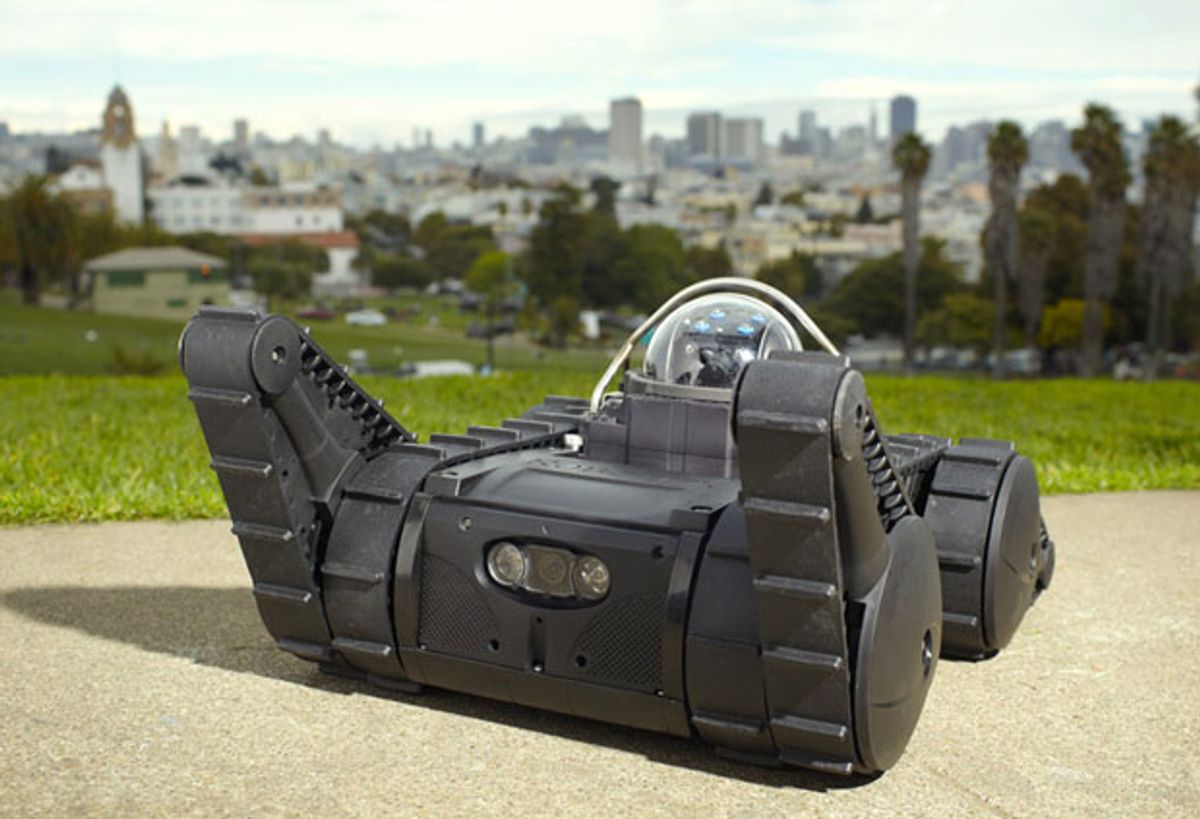The robotic victim was an Avatar from Robotex
Robots aren't people. This is why we get them to do all kinds of stuff that we'd rather not do, whether it's dull, dirty, dangerous, or other sinister words that start with "d." Robots don't have parents, they don't have feelings, they don't experience pain, and they don't hold it against you if you shoot them. So how much trouble can you get in for shooting them? Apparently, not much. At least in Ohio.
Here's how it went down, according to the Chillicothe Gazette, a local newspaper in Ohio:
The standoff began late Saturday, just before midnight Sunday, after Waverly police responded to a call alleging Michael Blevins had been making threats and had fired a gun inside his home on the 600 block of Walnut Street, Pike County Prosecutor Rob Junk said
When police arrived, Blevins reportedly refused to answer the door. Because of reports that he had several firearms inside, police called for assistance from the Ohio Highway Patrol’s Strategic Response Team, according to Gazette news partner WBNS 10TV.
Junk said a trained negotiator with the patrol and Waverly Police Chief Larry Roe tried to speak with Blevins and get him to come out to no avail.
The patrol’s team sent in a robot to determine Blevins’ location in the home. He reportedly used a pistol to shoot the robot, Junk said.
Ultimately, authorities went into the home and used an electronic stun device to subdue Blevins before arresting him, Junk said.
WBNS reported police had said Blevins was highly intoxicated.
For shooting the robot with a pistol while drunk, Blevins will reportedly be charged with vandalism of government property, a fifth degree felony that comes with a fine of up to $2,500. So I guess that settles it, then: as far as the law is concerned, robots are property. But what's going to happen when robots are able to pass a Turing test, at least on the level of an animal? Will they suddenly go from being property to being, say, pets? And if we start considering the emotional attachment people already get to their robots, things get even more murky.
We're all for police and military robots, precisely because when people shoot them it's vandalism and not something worse. At some point, though, robots are going to stop being machines and start being companions, and when they do, "property" might not be the right way to define them.
Via [ Singularity Hub ]
Evan Ackerman is a senior editor at IEEE Spectrum. Since 2007, he has written over 6,000 articles on robotics and technology. He has a degree in Martian geology and is excellent at playing bagpipes.



